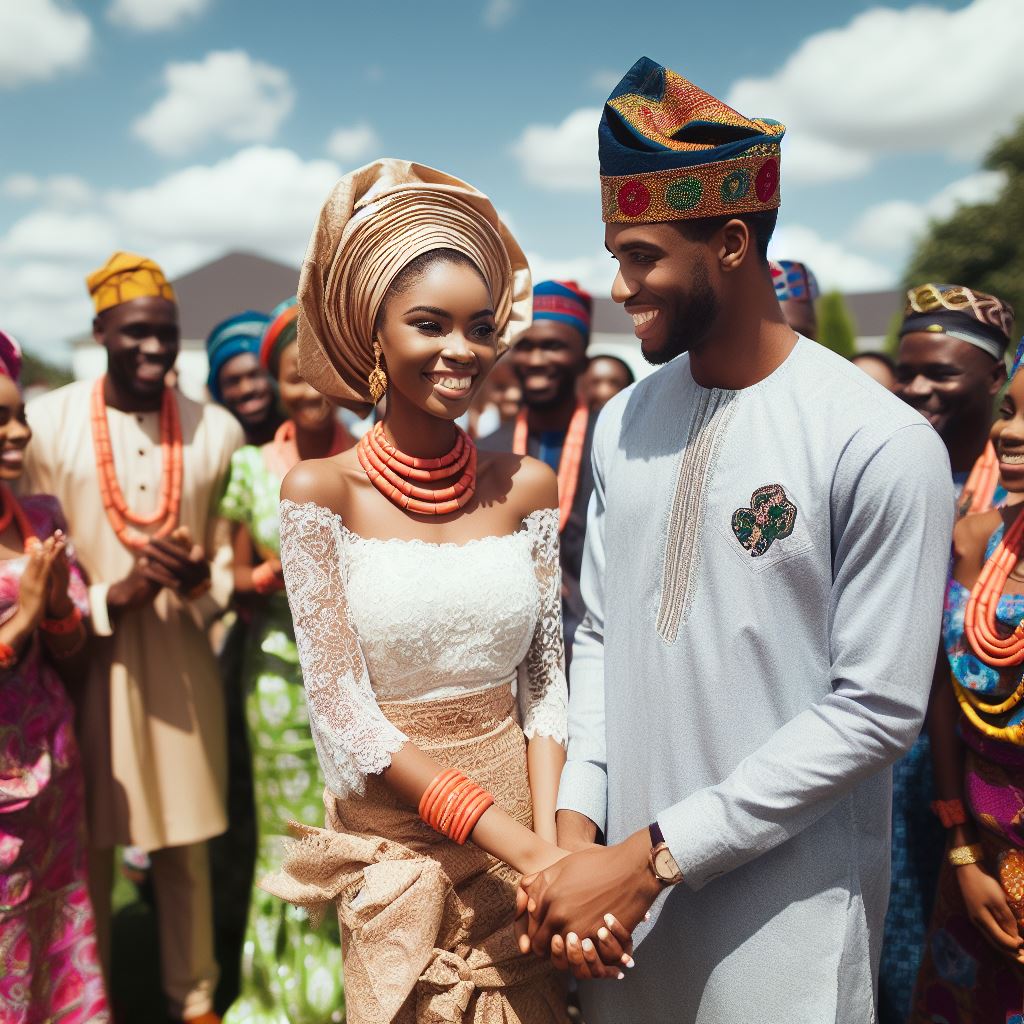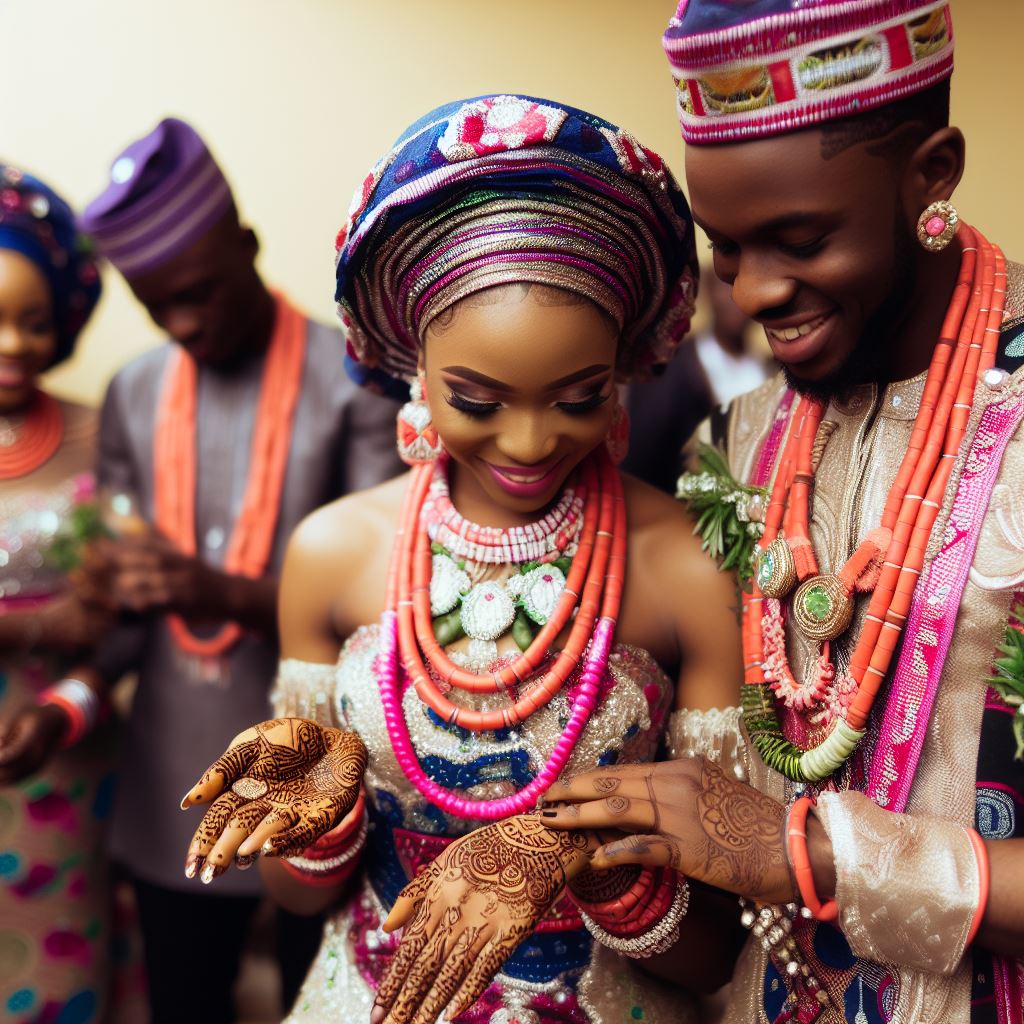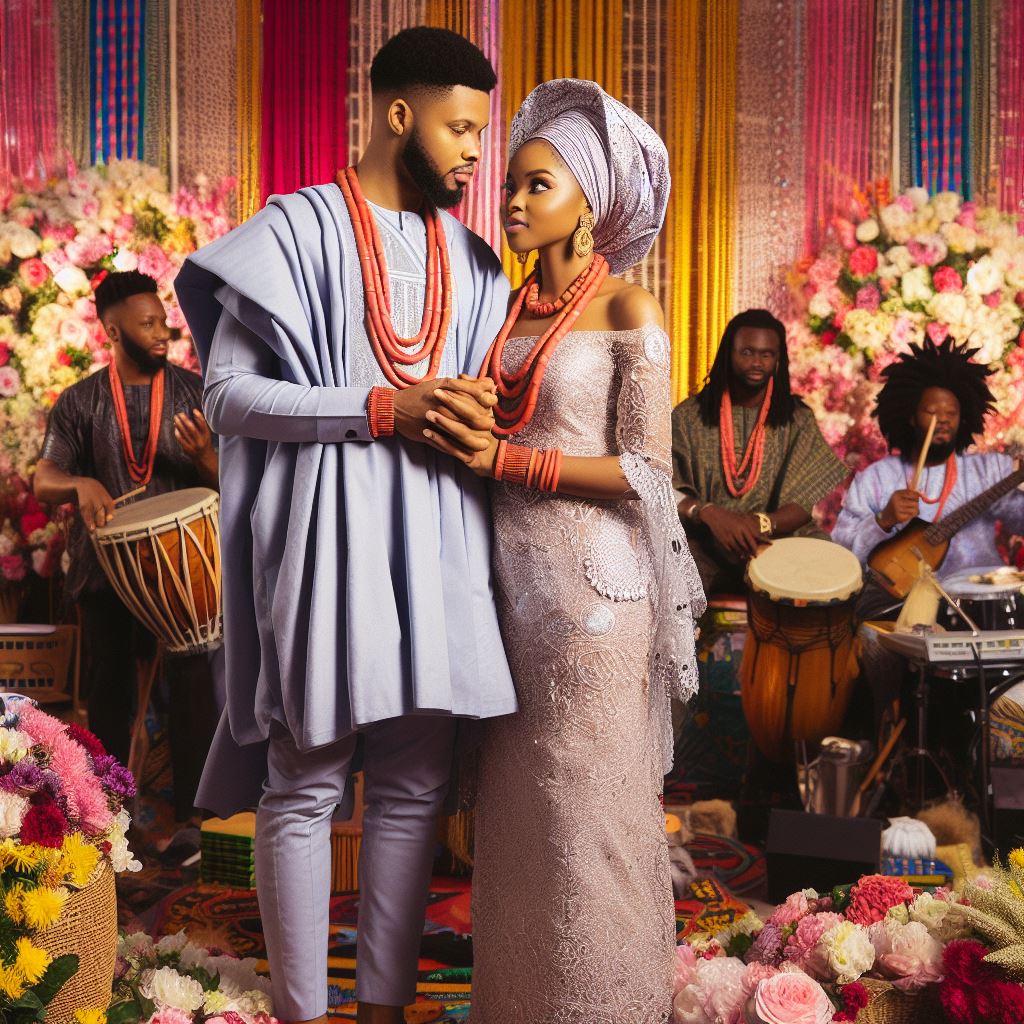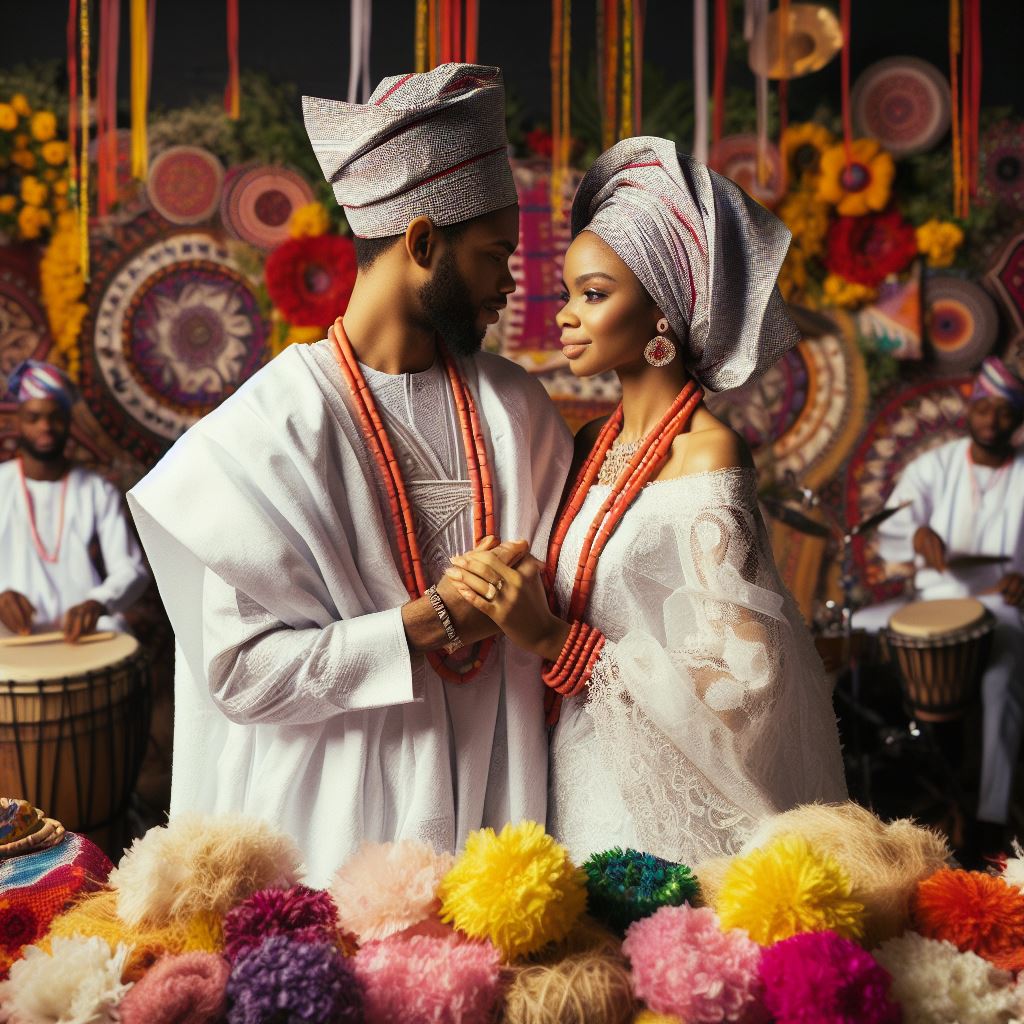Introduction
What is Westernization?
In this section, we embark on an enlightening journey into the concept of “Westernization” and its profound influence on Nigerian marital systems.
Introduction to Nigerian Marital Systems
To fully grasp the impact, it’s essential to have a preliminary understanding of the intricate and culturally diverse landscape of Nigerian marital systems.
Our primary objective is to delve deep into the multifaceted transformation induced by Westernization on the traditional marital structures deeply rooted in Nigeria’s rich cultural heritage.
The Fusion of Cultures
Westernization, as a multifaceted phenomenon, has not only left an indelible mark on Nigeria’s political and economic landscapes but has also significantly impacted the institution of marriage.
It has ignited a dynamic fusion of traditional customs and Western influences that shapes the marital choices, practices, and norms of contemporary Nigerian society.
Navigating Change
As we navigate through this exploration, we will uncover how Westernization has influenced marital roles, gender dynamics, and expectations within the context of Nigerian relationships.
We’ll also examine the challenges and opportunities that have arisen from this cultural interplay.
Join us in this enlightening discourse as we unravel the intricate threads of change and continuity in Nigerian marital systems under the influence of Westernization.
Traditional Nigerian Marital Systems
Overview of traditional Nigerian marriage practices
- Traditional Nigerian marriages are characterized by numerous customs and traditions.
- Marriages are often arranged by families and elders to ensure compatibility and social status.
- Bride price, also known as dowry, is a common practice to solidify the union.
- Polygamy is widely accepted, allowing men to have multiple wives.
- Marriage is seen as a union of two families and not just two individuals.
Communal involvement and family dynamics
- Traditional Nigerian marriages involve the participation of the entire community.
- Weddings are grand celebrations with elaborate ceremonies and feasts.
- Family members and close friends play significant roles in planning and organizing the wedding.
- Community support and approval are essential for a successful marriage.
- Extended family members contribute to the upbringing of children and resolving conflicts.
The role of religion and cultural customs in traditional marriages
- Religion plays a vital role in traditional Nigerian marriages.
- Christianity, Islam, and indigenous beliefs influence marriage customs.
- Religious leaders often officiate the wedding ceremonies and provide guidance to couples.
- Various rituals, prayers, and blessings are performed to seek divine intervention and blessings on the union.
- Cultural customs such as traditional dances, attire, and proverbs are observed to preserve heritage.
As Western influence continues to permeate Nigerian society, traditional marital systems experience notable transformations.
The influx of Western values, globalization, and modernization have influenced the way Nigerians approach marriage and family dynamics.
In The impact of Westernization on Nigerian marital systems is undeniable.
Individualism is on the rise, polygamy is declining, and religious and cultural customs are transforming, affecting Nigerian marriages.
Additionally, wedding celebrations have been influenced by these changes.
However, the coexistence of traditional practices with Western influences showcases the adaptability and resilience of Nigerian society.
Read: Cultural Impact of Reality TV: ‘Married at First Sight’ in Nigeria
Factors Contributing to Westernization in Nigeria
Historical context and colonial influences
Nigeria’s colonization by the British Empire in the 19th century played a crucial role in the country’s Westernization.
The British brought with them their customs, language, and legal systems, replacing traditional Nigerian practices in many aspects of life.
This imposed Westernization had a lasting impact on Nigerian society, including its marital systems.
Globalization and the spread of Western culture
The phenomenon of globalization has significantly contributed to the Westernization of Nigerian marital systems.
The interconnectedness of the world through trade, communication, and travel has led to the spread of Western cultural values, norms, and practices across borders.
This includes ideas of individualism, gender equality, and romantic love, which have reshaped Nigerian marital dynamics.
Technological advancements and media exposure
The advancement of technology and the media have played a huge role in promoting Westernization in Nigerian marital systems.
Television, movies, and the internet have exposed Nigerians to Western ideals of love, romance, and marriage.
These mediums have influenced perception and expectations, creating a shift towards Western-style courtship and relationships in Nigerian society.
Historical context, colonial influences, globalization, and technological advancements have led to the Westernization of Nigerian marital systems, causing significant impacts and changes.
The introduction of Western practices, such as monogamy and legal marriage, has altered traditional Nigerian marital systems, which were typically polygamous in nature.
Western values of individualism and gender equality have also influenced the roles and dynamics within marriages, giving rise to more egalitarian relationships.
Factors contributing to the Westernization of Nigerian marital systems include historical context, colonial influences, globalization, and technological advancements.
These influences have significantly altered traditional practices, but it’s essential to address the topic with nuance, examining both positive and negative impacts of Westernization on Nigerian marriages.
As Nigeria continues to navigate the complexities of cultural integration, it is crucial to preserve elements of Nigerian tradition while embracing valuable aspects of Western influence.
Read: Benefits of Seeking a Marriage Counselor Early in Conflict
Changes in Nigerian Marital Systems due to Westernization
Shift from arranged marriages to more autonomous partner selection
- Nigerian marital systems have undergone a significant transformation due to Westernization.
- One major change is the shift from arranged marriages to more autonomous partner selection.
- In the past, marriages were often arranged by parents or other family members.
- However, Western influence introduced the idea of individuals having the freedom to choose their own partners.
- This change has allowed Nigerians to have more agency in their matrimonial decisions.
- The emphasis is now on compatibility, shared values, and mutual attraction rather than fulfilling societal obligations.
- This shift has given individuals the opportunity to choose someone they truly love and connect with.
- Consequently, this change has given rise to a more egalitarian approach to marriage.
- Partners are now seen as equals who both have a say in important decisions.
Influence of Western romantic ideals and love marriages
- Another impact of Westernization on Nigerian marital systems is the influence of Western romantic ideals.
- The concept of love marriages, where two individuals marry because of their love for each other, is gaining popularity.
- Traditionally, love was not the primary consideration in Nigerian marriages.
- However, Western media, literature, and films have promoted the idea of romantic love.
- This has led to a change in the mindset of Nigerians, especially the younger generation.
- They now view love as an essential component of a successful marriage.
- Westernization has also introduced the notion of dating and courtship before marriage.
- Couples now have the opportunity to get to know each other better before making a lifelong commitment.
- These changes have resulted in a more emotionally fulfilling and satisfying marital experience.
Growing acceptance of divorce and legal recognition
- Westernization has also brought about a growing acceptance of divorce in Nigerian society.
- In the past, divorce was heavily stigmatized and considered a taboo.
- However, with Western influence, Nigerians are now more open to the idea of ending unhappy marriages.
- This shift in attitude has provided individuals with the freedom to seek a better life outside of a failed marriage.
- There is also a greater legal recognition of divorce in Nigeria, influenced by Western legal systems.
- This has made it easier for individuals to dissolve their marriages and start fresh if necessary.
- The acknowledgement of divorce as a valid option has empowered individuals in unhappy unions.
- It has allowed them to break away from toxic relationships and seek happiness in new partnerships.
Cultural, regional, and religious differences continue to shape how divorce is perceived and regulated worldwide.
Read: The ‘Married at First Sight’ Phenomenon: Nigeria’s Perspective
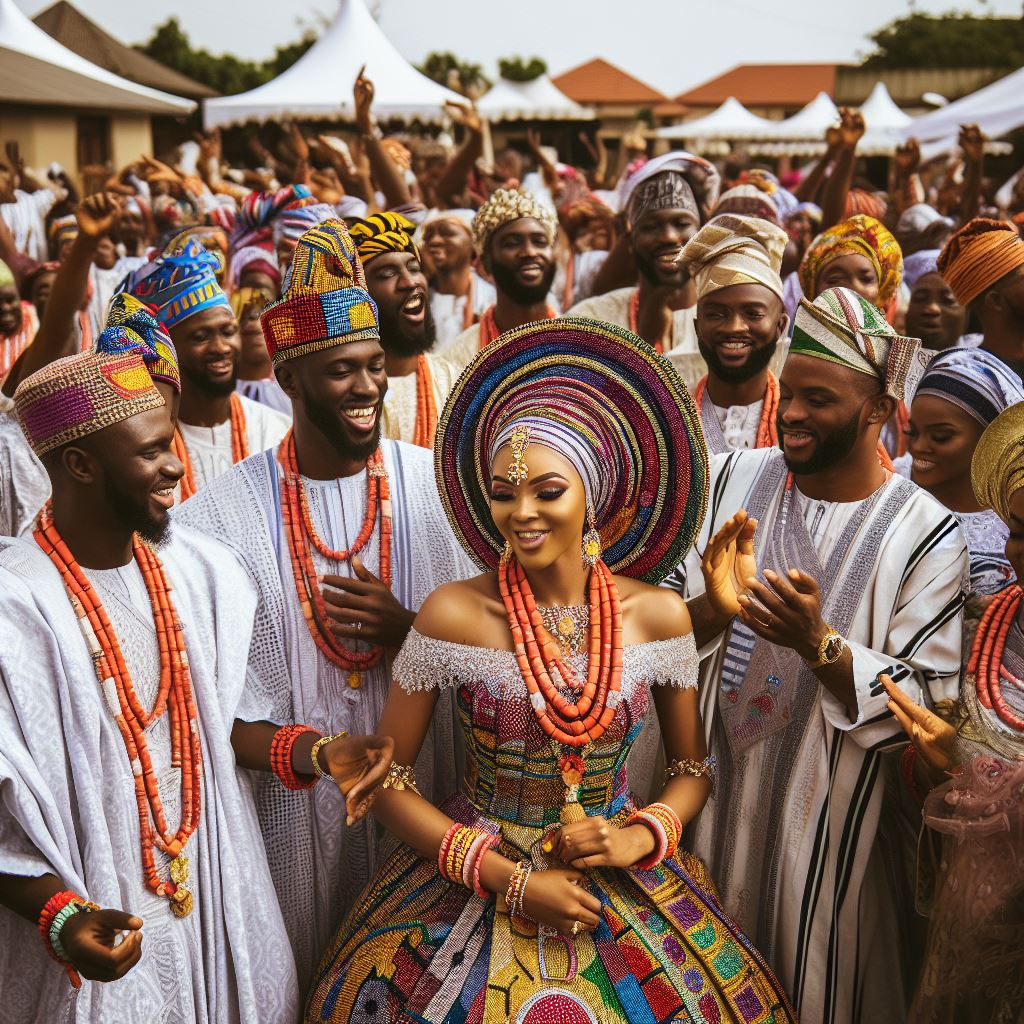
You Might Also Like: Harmony at Home: Daily Prayers for Peaceful Nigerian Families
Challenges and Controversies
Clash between traditional values and Western ideals
- Westernization has brought a clash between traditional Nigerian values and Western ideals.
- Traditional Nigerian values emphasize collectivism, extended family systems, and communal decision-making.
- Western ideals, on the other hand, stress individualism, independence, and personal decision-making.
- This clash has led to tension and conflicts within Nigerian marriages as couples struggle to reconcile these opposing values.
- Traditionalists argue that Westernization threatens the fabric of Nigerian marital systems.
- They believe that the erosion of traditional values will lead to the breakdown of the family unit.
- On the other hand, proponents of Western ideals argue that individual rights and freedoms should take precedence.
- They assert that Nigerian society must adapt to the changing times and embrace modern values.
Impact on gender roles and dynamics within marriages
- Westernization has significantly impacted gender roles and dynamics within Nigerian marriages.
- Traditionally, Nigerian marriages were patriarchal, with men being the breadwinners and decision-makers.
- However, Western ideals have challenged these gender roles, promoting gender equality and women empowerment.
- This has led to a shift in power dynamics within marriages, sometimes causing conflicts and resistance from traditionalists.
- Some Nigerian men feel threatened by the changing gender dynamics, perceiving it as a loss of power and control.
- On the other hand, many Nigerian women welcome the changes and see them as opportunities for personal growth.
- The impact of Westernization on gender roles within marriages has caused both empowerment and tension.
- Couples must navigate these changes and find a balance that works for them and their cultural context.
Concerns about the erosion of cultural heritage
- Westernization in Nigerian marital systems has raised concerns about the erosion of cultural heritage.
- Some traditionalists argue that Westernization threatens Nigerian cultural traditions, customs, and practices.
- They fear that the adoption of Western ideals could lead to the loss of unique Nigerian marital traditions.
- Critics argue that the pervasive influence of Western media and globalization have accelerated this erosion.
- However, others believe that cultural heritage can evolve and adapt to new influences while retaining its essence.
- They suggest that Nigerian marital systems can incorporate elements of Westernization without losing their cultural identity.
- The debate over the erosion of cultural heritage sparked by Westernization continues to be a contentious issue in Nigeria.
- Striking a balance between embracing modern influences and preserving cultural traditions remains a primary concern.
The erosion of cultural heritage is a complex issue that requires careful consideration of economic, social, and environmental factors,
as well as the active involvement of governments, communities, and organizations to safeguard cultural diversity and traditions.
Read: Couples of the Bible: Stories and Marriage Verses
Learn More: The Impact of Extended Family in Nigerian Marriages and Solutions
Benefits and Opportunities
Increased emphasis on women’s rights and gender equality
- Westernization has led to a greater focus on women’s rights and gender equality in Nigerian marital systems.
- Women are now being recognized as equal partners in marriages, with more rights and opportunities.
- This shift has empowered women to have a voice in decision-making processes within their marriages.
- Traditional practices that were once oppressive towards women are gradually being discarded.
- Western influence has brought about a change in societal attitudes towards women, valuing their contributions to marital relationships.
Modernization of marital practices for greater compatibility
- Nigerian marital systems have seen a modernization of practices to foster compatibility between spouses.
- Traditional arranged marriages have been replaced with more personalized approaches, allowing individuals to choose their partners.
- Compatibility and shared values are now considered essential in forming successful marital relationships.
- The emphasis on communication and understanding has increased, leading to healthier and happier marriages.
- Westernization has introduced the idea of marriages based on love and individual choice, ensuring a stronger foundation.
Adaptation of traditional customs to meet changing societal needs
- Westernization has prompted Nigerian marital systems to adapt traditional customs to suit changing societal needs.
- Traditional gender roles within marriages are being redefined to accommodate evolving expectations.
- Couples now have the freedom to negotiate their roles and responsibilities in the marriage.
- The concept of the nuclear family has become more prevalent, replacing extended family living arrangements.
- Socioeconomic factors have also influenced changes in marital systems, with couples prioritizing financial stability and career aspirations.
The impact of Westernization on Nigerian marital systems has brought about numerous benefits and opportunities.
Increased emphasis on women’s rights and gender equality has empowered women within marriages and challenged traditional oppressive practices.
The modernization of marital practices has led to greater compatibility between spouses, with an emphasis on love and personal choice.
Adapting traditional customs meets evolving societal needs, enabling flexible gender roles and changing family structures.
Overall, Westernization has played a significant role in reshaping Nigerian marital systems for the better.
Conclusion
Recap of main points discussed
In this section, we have discussed the impact of Westernization on Nigerian marital systems. We examined how Western ideas and practices have influenced traditional Nigerian marriage customs and norms.
We discussed how the introduction of Western ideals of romantic love has led to a shift in the expectations and dynamics of Nigerian marriages.
The emphasis on individual happiness and personal fulfillment has led to changes in the roles and responsibilities of spouses.
Furthermore, we explored how Westernization has affected the institution of polygamy in Nigeria.
Influence from Western notions of monogamous relationships is questioning and gradually phasing out the once-common practice of polygamy.
Overall assessment of the impact of Westernization on Nigerian marital systems
Overall, the impact of Westernization on Nigerian marital systems has been significant.
Challenging traditional norms and values led to changes in conducting and perceiving marriages.
While there are positive aspects to this transformation, such as increasing gender equality and the focus on individual happiness, there are also negative consequences.
The erosion of traditional values and the breakdown of extended family structures are some examples.
Closing thoughts on the future of Nigerian marriages in a globalized world
As we look to the future, Westernization and globalization will persist in influencing Nigerian marriages.
As the world becomes more interconnected, Nigerian society will face new challenges and opportunities in the realm of marriage.
It is important for Nigerians to navigate these changes while preserving their cultural heritage and values.
Finding a balance between tradition and modernity will be crucial in ensuring the stability and success of Nigerian marriages in the future.

